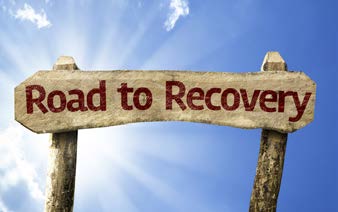MATE Helps Drug Users Kick the Habit

Human Services Spotlight Series #9
Recovering After 15 Years of Opioid Abuse
Despite health issues, a previously homeless MATE client is substance free and working toward full recovery.
The Bayside Health Clinic referred a 35-year-old client to Operation PAR for medication-assisted treatment and counseling services in the Health Care for the Homeless program’s Medication Assisted Treatment Initiative (MATE).
The client said she had a 15-year history of opioid abuse, primarily intravenous morphine and hydromorphone as well as a three-year history of cocaine use. The client, motivated for treatment and a lifestyle change, entered the program after a two-month hospital stay.
While struggling at first to go substance free, the client began to recognize the need for help, continued counseling sessions and applying coping skills learned. Previously homeless, the client found housing in a community residence program seven months into treatment. With stable housing, counseling, case management, medication-assisted treatment and psychiatric medication, the client became more stable. She improved physically, emotionally, mentally and financially.
After 11 months in treatment and after being out of the workforce for four years, the client obtained a full-time job. Unfortunately, a second round of health issues caused the client’s resignation from the job. However, at the time, the client had also begun rebuilding family relationships and was able to move home with immediate family.
Nearly two years later, the client remains stably housed and is surrounded by family. The many challenges experienced during treatment could have hindered recovery, however, the client remains abstinent and has been able to experience the benefits of a substance-free lifestyle.
The client wrote: “I am glad to say that I now have self-esteem, a clear head, family support and the sober fellowship to help me clearly see any type of manipulation. I am happy to say it has been two years since I have allowed myself to become entangled into a web of lies and abuse.”
As of February 2020, the client continues counseling sessions and negative drug screens. The client understands the importance of building a support system and is on the road to self-sufficiency.
The client continued: “I am officially no longer 17 and am on the road to becoming the woman I was always meant to be. I am still learning who she is, but one thing I can say for sure is that I love her very much.”
The Health Care for the Homeless program provides primary medical care, dental services and behavioral health services including substance use and medication-assisted treatment for homeless individuals. To learn more, visit Pinellas County Healthcare for the Homeless Program.
Funding for the MATE program comes from the U.S. Department of Health and Human Services Health Resources and Services Administration for the Pinellas County Health Care for the Homeless program. Human Services has partnered with Operation PAR and the Florida Department of Health to provide medication-assisted treatment services for those homeless clients with substance use concerns including opioid and alcohol dependence. According to the Pinellas County Opioid Task Force, more than one person dies every 48 hours from an opioid-related overdose.